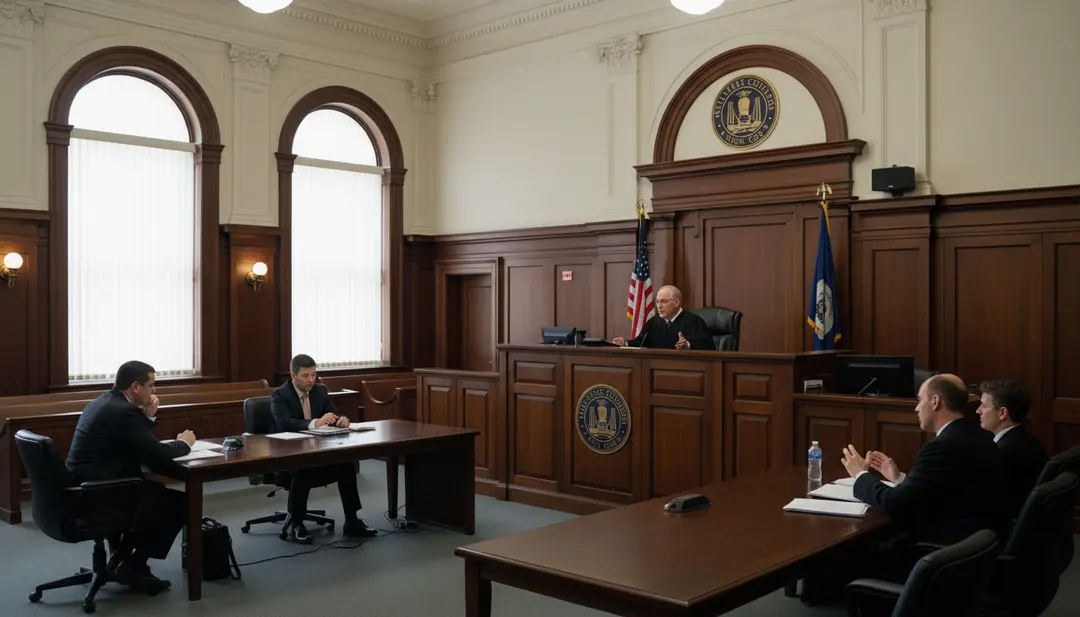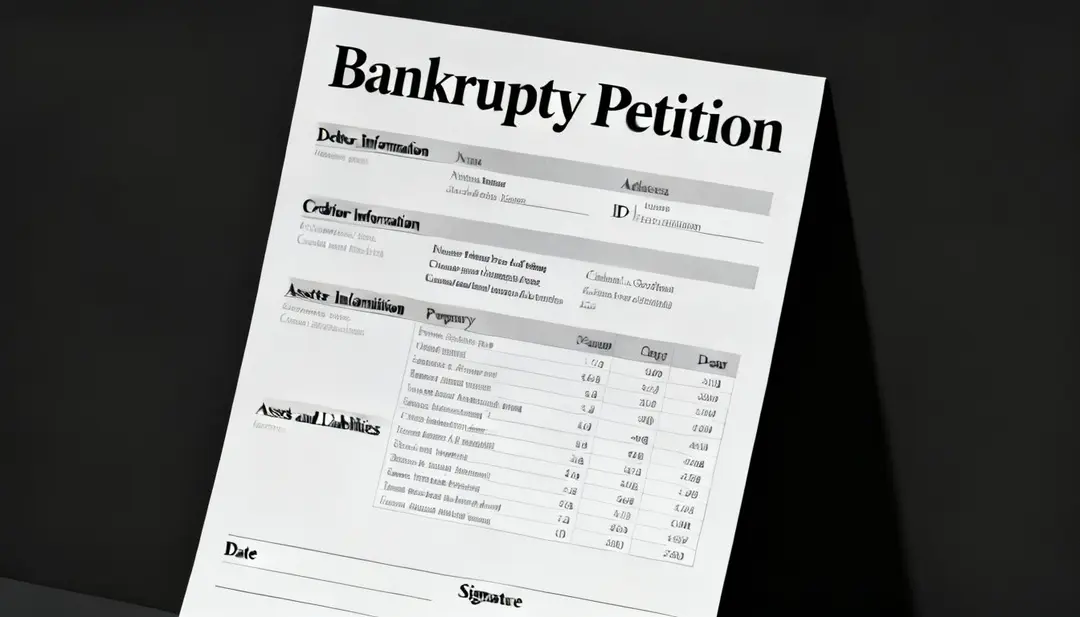How to Navigate Arizona’s New HOA Laws: A Guide to HOA Governance Changes Arizona [Updated for 2025]
Arizona has seen big shifts in HOA governance that boards and managers can't ignore. The recent changes affect everything from how associations hold meetings to how rules are enforced and fees are collected. These new laws bring extra responsibilities, and being unprepared can lead to confusion or costly mistakes.
Understanding the latest hoa governance changes Arizona is essential for anyone leading a community. Staying up to date means we manage risk, strengthen compliance, and keep operations running smoothly. At Halk, Oetinger, and Brown, our attorneys support boards as trusted advisors through these legal updates, using our experience as Arizona HOA Attorney, Phoenix HOA Lawyer, and Tucson HOA Attorney to help communities thrive.
For an in-depth look at the statutes shaping today's HOA environment, see our guide to Arizona HOAs 101: What Everyone Needs to Know About Arizona HOA Laws and Rules. Let's break down what these changes mean so leaders and managers can confidently protect their communities.
What Arizona’s New HOA Laws Mean for Board Members and Associations
Arizona’s HOA governance changes have real consequences for board members and associations throughout the state. These updates aim to make association management fairer, more transparent, and better organized. Whether we’re in Tucson, Phoenix, or anywhere else in Arizona, understanding these rules helps us serve our communities without headaches or risk. This section explains the most important legislative updates, how they affect our board responsibilities, and what to expect from meetings and record-keeping practices.
Overview of Key Changes
Arizona has introduced a range of new requirements for HOAs. Some changes may seem small, but together they reshape how we manage everything from daily tasks to long-term planning. Among the most significant updates:
• Greater notice for meetings: Boards must now give more advance notice to homeowners before holding key meetings.
• Required transparency: Associations are held to new standards about sharing information with owners, especially regarding budgets and rules changes.
• Tighter controls on voting and proxies: The rules now clarify who can vote, how proxy votes work, and what records must be kept.
• Expanded record access: Homeowners can request much more information, and boards must be prepared to provide it promptly.
• Restrictions on executive sessions: Boards must disclose and justify when meetings are closed to owners.
For a more thorough look at Arizona's HOA basics and legislative changes, see our overview in Arizona HOAs 101: What Everyone Needs to Know About Arizona HOA Laws and Rules.
Impacts on Board Duties and Decision-Making
HOA governance changes in Arizona mean we must update how we manage our associations and interact with members. Board members now carry more responsibility to act transparently and follow clear processes.
• Increased legal obligations: Laws outline exactly how rules must be enforced, notices given, and collections managed.
• Accountability for decisions: Every major action, from approving budgets to handling violations, must be documented and justified.
• Transparency as a core value: Owners expect regular updates and access to records, reducing suspicion or confusion about board actions.
• Stronger checks and balances: Boards acting without clear authority or process can face challenges—including costly disputes or legal action.
Attorneys with experience as an Arizona HOA Attorney, Phoenix HOA Lawyer, or Tucson HOA Attorney, like those at Halk, Oetinger, and Brown, provide valuable support for boards adapting to these shifts. Our team offers flat rate services—so instead of worrying about hourly billing, we can focus on guiding associations with steady, clear advice.
Changes to Meetings, Voting, and Records
The rules for how HOAs hold meetings, cast votes, and share information just became far more precise. These updates don’t just add paperwork—they protect both boards and homeowners, and keep our associations running smoothly.
New requirements include:
1. Meetings:
o More advance notice and detailed agendas for members before meetings.
o Rules about executive sessions, including when they may be held and how decisions must be disclosed.
o Meeting minutes must be thorough, promptly prepared, and accessible to members.
2. Voting and Proxies:
o Stricter voting rules prevent misuse or confusion around proxies.
o Boards must keep detailed voting records, which members can inspect if needed.
3. Records and Transparency:
o Homeowners can request almost any association record, and boards have deadlines to respond.
o Budgets, policies, and meeting records must be shared proactively, not just on request.
For new and experienced board members alike, resources such as HOA Board Meeting Boot Camp: What Every HOA Board Member in Arizona Needs to Know help clarify these obligations and best practices. These legislative changes require us to be organized, responsive, and committed to open communication. Strong processes for meetings, records, and votes help boards avoid conflict while serving residents better.
Staying Compliant: Best Practices for Arizona HOAs
Meeting the demands of new hoa governance changes Arizona is about more than just understanding statutes. We also need a strong foundation of practical habits that support compliance and keep our associations running smoothly. When we follow best practices, we make it easier to maintain order, build confidence with homeowners, and avoid risks.
Financial and Fiduciary Responsibilities
Effective financial management is the backbone of any successful HOA. As Arizona law evolves, so do our duties as stewards of the community’s funds. New legislation puts the spotlight on budget planning, prompt assessment collection, and detailed financial reporting.
We must:
• Prepare honest, thoughtful budgets that reflect both current needs and future expenses.
• Communicate upcoming assessments and deadlines clearly to homeowners.
• Track and collect assessments with fairness, using policies that are consistent and well-documented.
• Monitor all spending and record it transparently to avoid misunderstandings.
• Create thorough financial reports and share them with members at regular intervals.
Maintaining these practices helps owners trust that their money is properly managed and that we are safeguarding the association’s health. For a closer look at board member responsibilities under Arizona law, we recommend reading Understanding the Financial Responsibilities of HOA Board Members.
Ensuring Transparency and Trust
Openness is the key to smooth relationships between boards and homeowners. The new laws demand greater access to records, as well as prompt, honest communication. To foster this culture of trust, we need simple and reliable processes.
Here’s what works well:
• Regular updates about meetings, rule changes, and major decisions.
• Fast and complete delivery of requested documents, from minutes to financials.
• Clear channels so members know who to contact with questions.
• Open board meetings except for the few sessions allowed to remain closed by law.
• Public records of votes and board actions.
By making transparency non-negotiable, we reduce confusion, discourage rumors, and make it clear that we have nothing to hide. These strategies are explored in detail in Arizona HOA: An Essential Guide to Cultivating Transparency and Trust.
When to Seek Professional Legal Guidance
Complex laws mean questions are bound to come up. Knowing when to call an Arizona HOA Attorney, Phoenix HOA Lawyer, or Tucson HOA Attorney can turn a potential problem into an opportunity for smart action. Legal professionals help clarify statutes, write strong policies, and handle disputes—especially as new regulations are rolled out.
Situations where we benefit most from legal support include:
• Interpreting or amending governing documents to align with the latest laws.
• Dealing with difficult assessment collections or persistent violations.
• Addressing conflicts between owners and the board.
• Navigating complicated or high-stakes meetings.
• Responding to formal records requests or potential litigation.
At Halk, Oetinger, and Brown, our fixed-fee counsel services simplify this process, making expert advice accessible and predictable for all types of Arizona HOAs. For more information on our approach and how we help boards govern with confidence, visit our overview of association governance legal services.
By maintaining strong financial practices, building transparency, and knowing when to call in professional help, we set our HOA up for lasting success as Arizona law continues to change.
Frequently Asked Questions About Arizona HOA Governance Changes
Staying informed is the best way for board members and community managers to meet their new responsibilities under the most recent hoa governance changes Arizona has faced. Questions about compliance, meetings, voting, record-keeping, and transparency come up often. We've gathered the most common questions and provided clear answers to help you act with confidence and keep your association running smoothly.
What are the most significant changes in Arizona’s new HOA laws?
Recent updates to Arizona's HOA laws focus on accountability, transparency, and improving communication between boards and residents. The major highlights include:
• Expanded meeting notice requirements: Boards must provide greater advance notice to members, and the details of upcoming meetings must be easily accessible.
• More transparency in records: Homeowners have increased rights to review budgets, bylaws, enforcement actions, and board meeting minutes.
• Clearer voting and proxy rules: Laws now clarify valid voting methods, including restrictions on proxies and how those votes are recorded.
• Stricter executive session guidelines: Boards must announce when meetings are closed and provide a clear reason for keeping discussions private.
• New standards for collections: Boards need to follow detailed procedures for collecting assessments and managing delinquencies.
For a step-by-step look at some of the most common compliance issues facing Arizona associations—and how boards can adopt solutions that work—take a look at our overview on navigating HOA compliance challenges.
How do the new rules affect HOA board meetings and voting procedures?
HOA board meetings now come with tighter rules on notice, documentation, and access. Here’s how these changes play out:
• Notice and accessibility: Boards must give homeowners specific advance notice—usually at least 48 hours—before meetings. Information about time, location, and agenda needs to be shared by physical posting, email, or both.
• Meeting minutes: Notes from every meeting must be clear, accurate, and available to homeowners within defined timeframes. These help build a transparent record.
• Executive sessions: Boards must limit closed-door sessions to narrow, legally-defined topics and always disclose non-confidential outcomes afterward.
• Voting: Tighter rules ensure each eligible owner has a voice, stop duplicate or invalid votes, and clarify proxy requirements.
• Records and transparency: Votes on major decisions must be carefully tracked. Members may now inspect results, providing peace of mind about the process.
For better meeting practices and clarity on running compliant, efficient sessions, many boards review detailed resources like Understanding the Role of HOA Committees in Arizona, which addresses meeting organization and board-member collaboration.
What are board members’ responsibilities for financial compliance under new laws?
The updates to hoa governance changes Arizona put greater pressure on board members to manage association finances carefully and transparently. Our main duties include:
• Thorough record-keeping: Every transaction, invoice, and budget adjustment must be logged and tracked. Organized files help during internal reviews or when responding to owner questions.
• Assessment collection: Boards need clear, written policies that spell out how assessments are billed, how late payments are handled, and when action is taken on delinquencies.
• Annual reports: We must generate and share annual financial statements with homeowners—these are sometimes subject to audit when requested by the community.
• Document retention: Certain financial records must be kept on file for set periods, sometimes up to several years, so we can answer any legal or tax-related questions that arise.
Strong management means fewer surprises for homeowners and less risk for board members. When in doubt, many rely on help from professionals like an Arizona HOA Attorney, a Phoenix HOA Lawyer, or a Tucson HOA Attorney for guidance on compliance and best practices.
How can Arizona HOAs increase transparency with their members?
Transparency goes beyond just following the law; it’s a key strategy for building trust and preventing unnecessary disputes. Proven ways to promote openness include:
• Share regular updates: Consistent messaging about meetings, changes to rules, finances, and key projects keeps everyone in the loop.
• Open communication channels: Offer a direct contact for questions and encourage feedback from residents.
• Prompt document delivery: Quickly respond to requests for records or minutes, showing homeowners there’s nothing to hide.
• Public records access: Make policies, budgets, and meeting minutes easily available—either in digital folders or on a community website.
• Routine reports: Schedule regular distributions of newsletters, board updates, or financial summaries.
Transparency strengthens relationships within the community and helps prevent misunderstandings that could develop into conflicts. For more proven approaches and tactical ideas, explore our practical guide on navigating HOA compliance challenges.
When should an HOA consult a specialized attorney?
Even with the best policies and intentions, some situations require expertise beyond the boardroom. We recommend reaching out to an Arizona HOA Attorney, Phoenix HOA Lawyer, or Tucson HOA Attorney in these scenarios:
• Updating or interpreting governing documents after legislative changes.
• Unresolved disputes with homeowners or service providers.
• Assessment collection efforts that have reached a legal dead end.
• Meeting compliance questions or facing allegations of improper board action.
• Responding to official legal notices, lawsuits, or complex public records requests.
At Halk, Oetinger, and Brown, our flat rate general counsel services make it practical for associations to reach out on any issue, without worrying about unpredictable costs or extra billing. We know the unique challenges that come with HOA law in Arizona and focus on giving communities the clear, workable advice they need.
Where can I learn more about Arizona HOA governance and legal updates?
We believe that well-informed board members and managers form stronger, more effective associations. For a comprehensive look at laws, rules, and best practices in Arizona HOAs, our in-depth article—Arizona HOAs 101: What Everyone Needs to Know About Arizona HOA Laws and Rules—covers the foundations you need.
Whether you’re facing questions about the latest legislative updates, compliance strategies, or daily management, these resources and our legal team are ready to support you every step of the way.
Conclusion
Adapting to hoa governance changes Arizona takes focus, clear processes, and a willingness to learn. As laws shift, we safeguard our associations by staying informed, giving homeowners the transparency they deserve, and following best practices that have proven effective across communities statewide.
We encourage you to use trusted legal resources, watch for legislative updates, and act quickly when new requirements appear. When challenges arise, a dedicated Arizona HOA Attorney, Phoenix HOA Lawyer, or Tucson HOA Attorney can offer the step-by-step guidance boards need to avoid mistakes and reinforce stability. Our team at Halk, Oetinger, and Brown stands ready to help you address compliance, collections, governance, and litigation with the benefit of experience and a predictable flat-fee structure—making quality counsel accessible for every planned community or condominium.
The right preparation today keeps your community protected tomorrow. Discover how local regulations continue to influence Arizona associations in our feature on The Impact of Local Regulations on Arizona HOAs. Thank you for putting your trust in the professionals who support responsible, forward-thinking board leadership that benefits all members.















